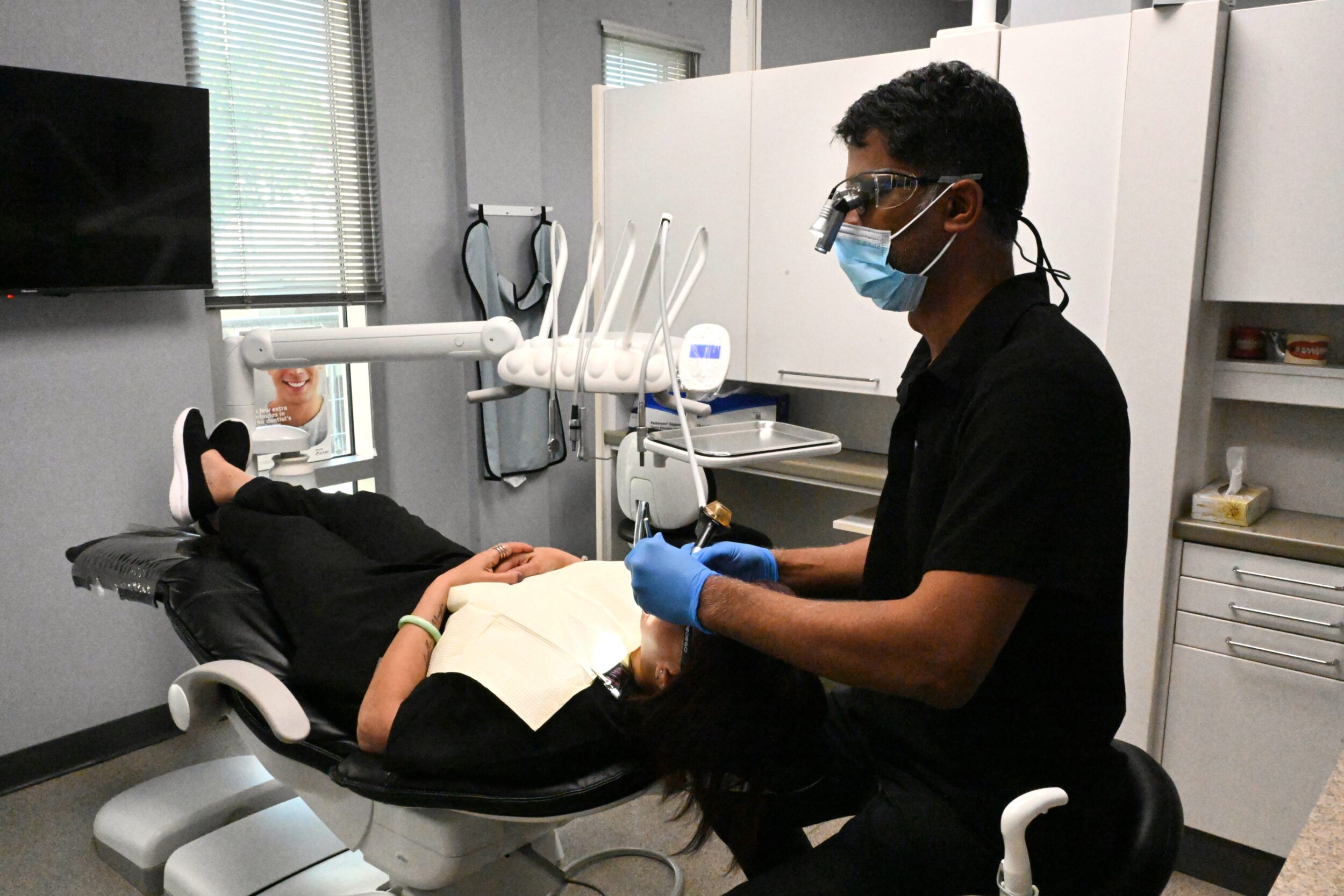Bruxism in Calgary, AB
In most people, bruxism refers to an oral parafunctional activity that occurs at some point during their lifetime. Grinding your teeth and clenching your jaw are the two main symptoms of this condition, which can happen day or night.
The condition known as bruxism is one of the most common sleep disorders and most of its damage occurs while sleeping. The grinding and clenching associated with bruxism is a result of a malfunctioning chewing reflex, which is off when sleeping in non-sufferers. Deep sleep or even naps can cause the reflex nerve control center in the brain to shut down, causing the reflex pathways to become active.

In general, opposing arches grind against each other laterally as the incisors and canines (front 6 upper and lower teeth) grind against one another. This side-to-side motion puts an undue strain on the temporomandibular joints and the medial pterygoid muscles as a result of the side-to-side motion. Bruxism is commonly associated with earaches, depression, headaches, eating disorders and anxiety, as well as chronic stress, Alzheimer’s disease, and alcohol abuse.
There are several possible causes of tooth wear, including bruxism, which is often misdiagnosed or not diagnosed at all. Only a trained professional can distinguish between wear caused by bruxism and wear caused by overly aggressive brushing, acidic soft drinks, and abrasive foods.
The BiteStrip® is an economical device that can be used to diagnose bruxism at home. It is a small electromyography device which detects and monitors any activity in the jaw muscles during sleep. The frequency and severity of the condition can then be assessed in order to formulate the best treatment plan based on the frequency and severity of the condition.
Reasons for the treatment of bruxism
Some of the main reasons why bruxism should be treated as soon as possible are as follows:
Gum recession and tooth loss
Bruxism contributes significantly to gum recession and tooth loss; first, because it damages the soft tissue directly, and second, because it leads to loose teeth and deep pockets in which bacteria can colonize and destroy the supporting bone.
Arthritis
When bruxing is severe or chronic, it may eventually lead to painful arthritis in the temporomandibular (TMJ) joints (the joints that allow the jaw to open smoothly).
Occlusal trauma
As a result of abnormal wear patterns on the occlusal surfaces of the teeth (chewing surfaces), fractures can occur in the teeth, which may require restorative treatment.
Myofascial pain
The grinding that occurs with bruxism can eventually shorten and blunt the teeth due to the constant grinding. The result can be debilitating headaches and muscle pain in the myofascial region.
Bruxism treatment options
A variety of helpful tools and devices are available to treat bruxism, but there is no single cure. The following are some common treatments for bruxism:
- Mouthguards –
A mouthguard made of acrylic can be designed from tooth impressions to minimize the abrasive action of teeth during sleep. Long-term wear of a mouthguard can prevent tooth damage, damage to the temporomandibular joint, and help stabilize the occlusion.
- NTI-tss device –
A health professional fits this device and only covers the front teeth. NTI-tss is intended to prevent the grinding of the rear molars by limiting the contraction of the temporalis muscle.
The use of relaxation exercises, stress management education, and biofeedback mechanisms are other methods of treatment. There are a variety of dental procedures that can restore a pleasant aesthetic appearance to the smile once bruxing is controlled, including crowns, gum grafts, and crown lengthening.
Please contact your dentist if you have any questions or concerns regarding bruxism.